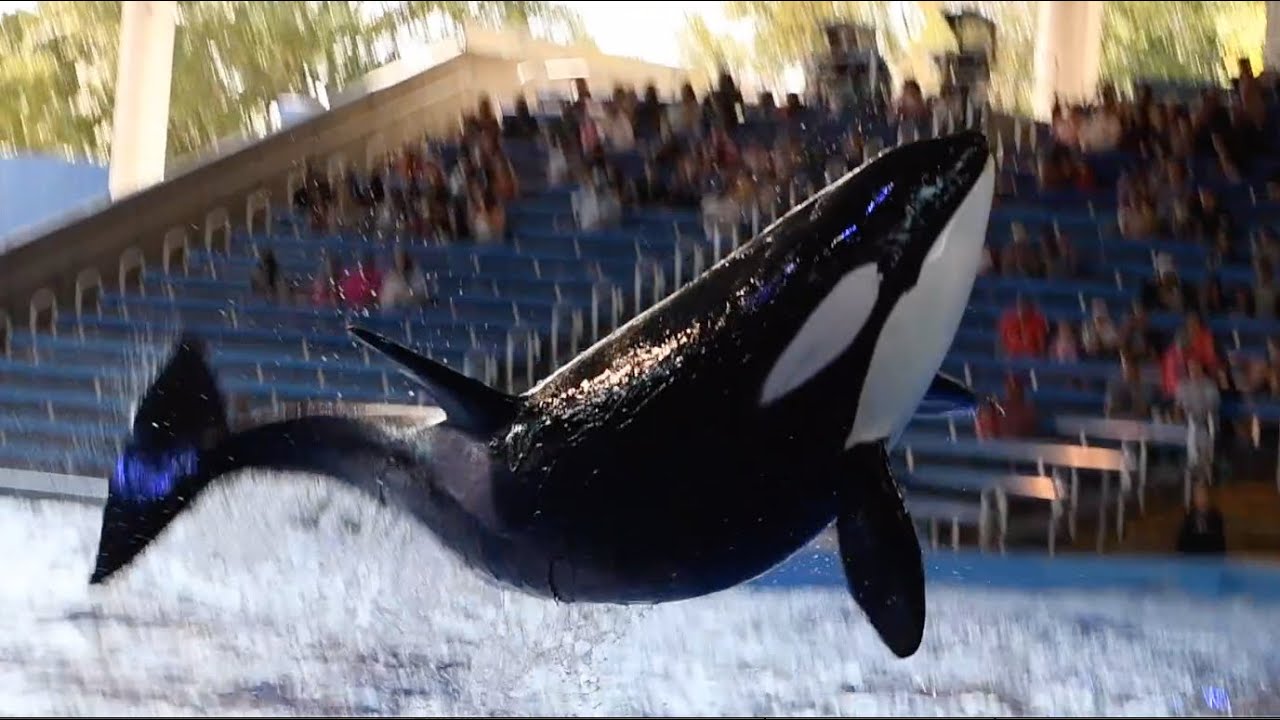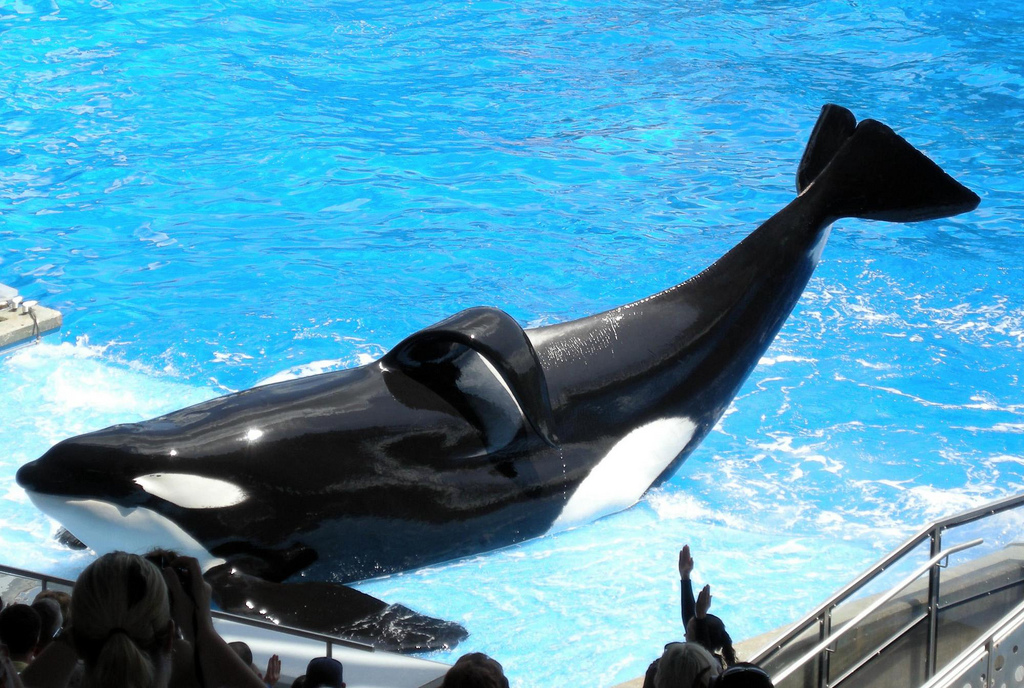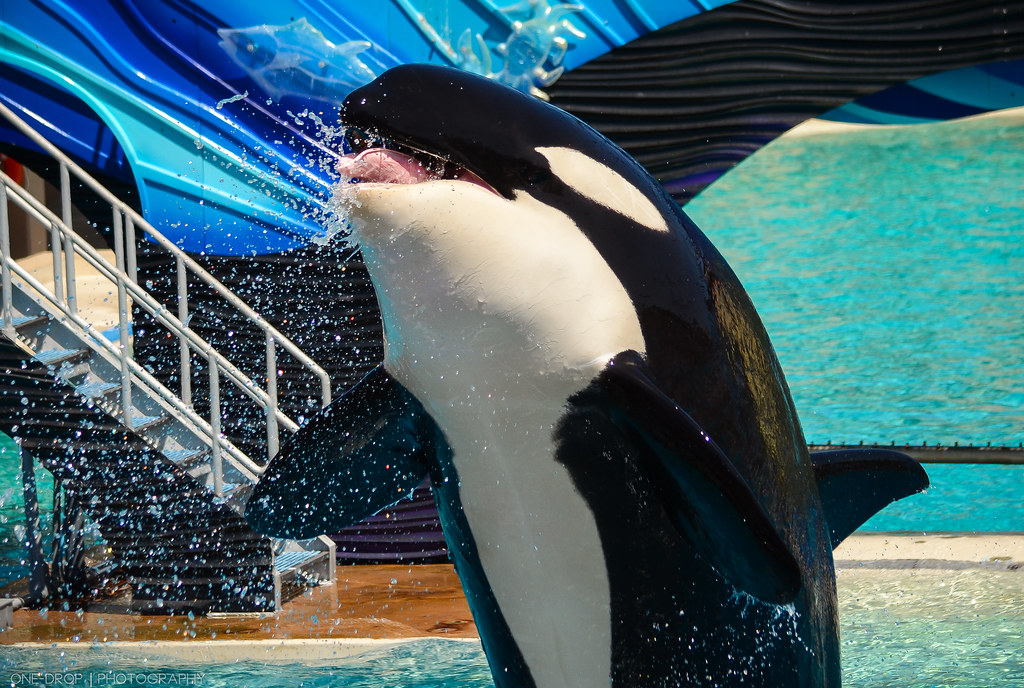Hello!
Stink Bomb
An orca held in captivity had a killer surprise for the crowd at SeaWorld San Antonio, some of whom may now be regretting their front-row seats.
 As seen in a viral video, the whale was swimming near the very edge of its see-through tank during one of the controversial oceanarium's shows.
As seen in a viral video, the whale was swimming near the very edge of its see-through tank during one of the controversial oceanarium's shows.
And for the humans cheering on its miserable existence, the majestic creature presented a gift: an unimpeded view of it letting out a nasty, greenish-brown slurry of excrement, blooming through the perfectly blue water.
The orca dives away, and the crowd laughs it off — but not for long. Moments later, our cetacean underdog leaps out of the water and lands with a huge splash, totally dousing the screaming front rowers in a solution of its all-natural feculence. You get what you paid for.
Cradle of Filth
We'd like to think of this as the orca getting its revenge. After all, these are highly intelligent and social creatures who've figured out how to take out yachts. Maybe this is its way of striking back at annoying onlookers the same way that others of its kind — in the wild — are known to play with their food.But, not to rain feces on everyone's parade, the video is also a grim reminder of the terrible conditions that captive orcas are subjected to.
"These animals in the wild wouldn't be circling around and then swimming back through their own excrement," Ingrid Visser, a marine biologist and a renowned orca expert, told Yahoo News Australia. "They poop and carry on swimming,"
"But in an aquarium, they're having to circle around and swim through their own excrement," she added. "They swim with their mouths open, their eyes open, it's absolutely disgusting for them."
Prison as Circus
 SeaWorld and other oceanariums remain controversial for holding dozens of whales and dolphins in captivity.
SeaWorld and other oceanariums remain controversial for holding dozens of whales and dolphins in captivity.
Of the 18 captured orcas in the United States, all of them are kept between three SeaWorld parks. Critics argue that the artificial environments built for the whales are far too confined, unhygienic, and socially isolating for these enormous apex predators, who tend to die significantly younger in captivity than they do in the wild, where females typically live around fifty years, and sometimes as long as ninety.
The marine theme park chain was infamously the subject of the 2013 document "Blackfish," which focused on the unethical treatment of one of its captive orcas named Tilikum. The nearly 23-foot long male, which lived most of its life at SeaWorld Orlando, killed three people, including two trainers.
The public backlash brought on by the documentary is often credited for pressuring SeaWorld into eventually ending its horrendous orca breeding program. The fact that the chain continues to gleefully parade around captive orcas, though — and that people still show up in droves to cheer the spectacle on — makes it hard to feel too bad for the folks in the splash zone.
Also read:
- How Important can Digital Debt Collection Play in Fintech Success?
- 7 Reasons Why You Should Always Track Your Business Expenses
- New Technology and Its Impact on the Practice of Law
Thank you!
Join us on social networks!
See you!






